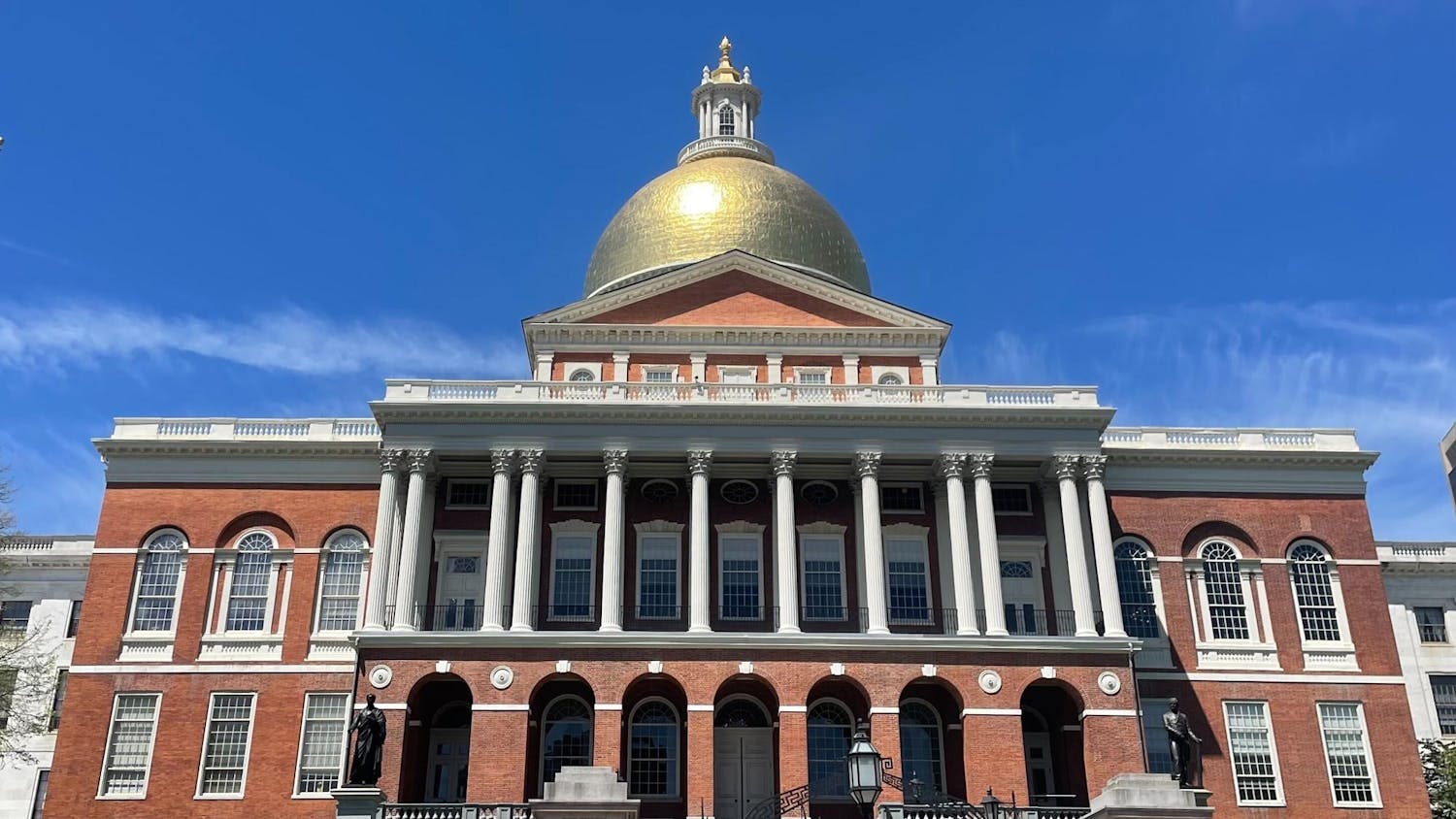Former U.S. Ambassador to Israel Martin Indyk yesterday said that the United States should expect the wave of change spreading across the Middle East and North Africa to leave no corner of the Arab world untouched, at a luncheon in Chase Center.
The United States must form a coherent strategy for dealing with our autocratic allies to ensure that it remains on the right side of history, he told the attendees, an audience that largely consisted of students from The Fletcher School of Law and Diplomacy.
Indyk, vice president and director of foreign policy at the Brookings Institution in Washington, D.C., and a former Clinton administration official, said the unusually high rate of people in the Arab world under the age of 30, coupled with high rates of unemployment among Arab youth, pushed years of dissatisfaction with governments to boil over in the last few months.
"It only took a spark," Indyk said. Social media has enabled young Arabs to communicate across borders freely and cheaply, while the satellite-based TV news organization Al Jazeera has beamed developments into living rooms throughout the region, he added.
Indyk argued that contrary to the narrative that a Tunisian fruit seller who lit himself on fire set off the current upheaval, the fall of Saddam Hussein's oppressive government in Iraq years before had registered in the minds of millions of Arabs.
The recent end to the Tunisian and Egyptian regimes made people think, "Maybe these regimes are actually hollow," he said.
During the event, which was organized by the Fares Center for Eastern Mediterranean Studies for the Charles Francis Adams Lecture Series, Indyk reminded the audience that while each country was different, every Arab leader — the vast majority of whom are autocrats — would have to answer to his people.
"Even in the most benign places, the taste of freedom is intoxicating," Indyk said.
The United States' policy of exempting the Middle East from its general agenda of democracy promotion abroad has caught up with policymakers, according to Indyk. The American commitment to Israel and to ensuring free flow of oil from the Persian Gulf region has led four decades of Democratic and Republican administrations to support "our autocratic dictators" in the Arab world, he said.
"In the Middle East, we have not sought to promote democracy," Indyk said. "We have instead focused on stability."
Because the global economic recovery depends on a continuous supply of oil from the Gulf region, the Obama administration's hands are tied when dealing with Bahrain's and Saudi Arabia's often-violent crackdowns on protesters, he added. The world economy can absorb shocks from upheaval in countries with relatively smaller oil outputs, such as Libya, but any disruption to Saudi Arabia's flow would do great harm, he said.
"Saudi Arabia goes out, and you kiss good-bye to the global economic recovery," Indyk said.
As the balancing act between promoting democratic reforms and dealing with potential instability continues to plague American policymakers, the United States must negotiate "a new compact" with autocratic leaders like the king of Saudi Arabia, Indyk argued. He said the United States has the opportunity to send such allies a message that, if they engage in reforms, it will not pull the rug out from under them.
Indyk praised the Obama administration's handling of the Egyptian and Libyan crises.
He called Libya a "sideshow" to developments in Egypt, traditionally known as the heart of the Arab world. "What happens in Egypt will affect everything else," he said.
A question-and-answer session that followed Indyk's remarks touched on water issues, reconciliation between Palestinian groups, Lebanon's role in the region and whether the Syrian situation is particularly unique, among other topics.
Jill Slutzker, a first-year Master of Arts in Law and Diplomacy student at Fletcher, said Indyk's engaging overview of recent events was quite practical, most likely a result of his background in policy.
"I thought it was really interesting that he made the point that Libya is not really the main event," Slutzker said.
In her introductory remarks, Fares Center Director Leila Fawaz said Indyk was originally scheduled to speak more broadly about President Barack Obama's approach to the Middle East, but that recent news had altered that plan.





